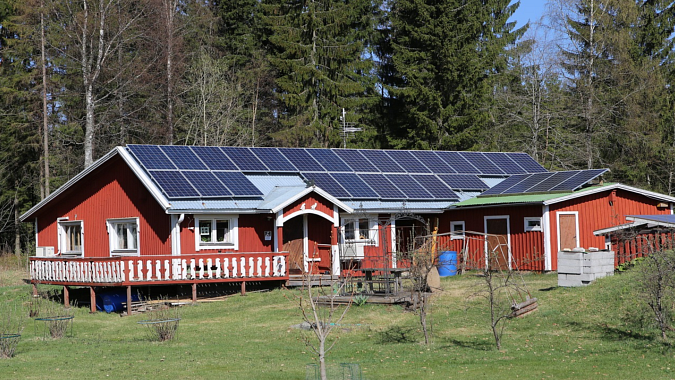
Many immensely successful business ideas once appeared ridiculous. For example, self-driving electric cars were deemed crackpot ideas, yet Tesla Motors is now more valuable than all legacy carmaker stocks combined. But there is a larger industry waiting for the next revolution, and the size of this industry is many times that of the auto industry.
Elon Musk, the CEO of Tesla Motors, is considered by most to be an exceptional entrepreneur. His energy level is unbelievable and becomes apparent each time he appears on stage. It seems he enjoys tearing down both innovative and traditional industry walls, especially ones that are complacent and unlikely to be disrupted.
The legacy automotive industry is an example of an old, outdated, static, and relatively stagnant business. The most recent breakthrough in this industry was Rudolf Diesel’s engine, invented 120 years ago. The diesel engine was heavily noisy and produced unpleasant vibrations in the car body. It took 100 years to improve it, so most drivers finally accepted it. Diesel was supposed to be the future of environmentally sustainable mobility, though that plan ultimately failed. As a result, the conventional gasoline engine is still the most popular vehicle propulsion.
Carmakers have long been criticized for polluting the planet with carbon dioxide. Just two to three years ago, EVs were not expected to be available soon. Only recently, electric cars have finally become a viable option. Elon Musk’s bet was winning, shocking the legacy carmaking industry to its core. It is impossible to overestimate the political implications of the EV revolution. Today, we can purchase and drive an EV right now. Only a few years ago, Tesla’s cars were an example of an unrealistic fad that was doomed to fail. “First they ignore you, then they laugh at you, then they fight you, then you win,” Mahatma Gandhi allegedly once said. I am sure nobody laughs at Tesla anymore.
His other recent, unconventional initiatives include revolutionizing space travel and digging huge holes in the ground. Very cool – but this does not feel disruptive enough.
But there is another industry out there longing for a disruption. It is an industry branch that virtually everyone is passionate about. Like the legacy carmaker industry, it is entrenched in a static, inert, and tradition-rich culture. It is also very risk-averse and rather publicity-shy.
I am talking about the real estate and homebuilding industry.
The next disruption
The home property and home building industry is not “just” another industry. It is the largest, most crucial industry out there.
It is absurdly massive. The global residential properties amount to US$ 170 trillion (statistical figures as of 2016).
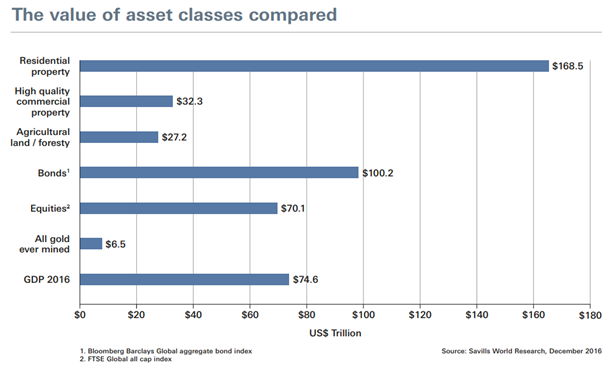
The importance of the housing market became evident during the Great Recession. It is more fundamental and indispensable than anything else. Without proper housing, we would be behind even cavemen. We would probably still be fighting for a better spot in on a nearby tree branch. There would be no progress at all, as proper shelter is more essential than anything I can think of.
At the same time, ever-increasing urbanization has become an unstoppable and global megatrend. Available living space is becoming expensive in big cities. We have all heard the property sellers’ mantra, “location, location, location,” when it comes to finding a suitable property. Many of us hate it yet have no choice but to move closer to urban centers because of the jobs and businesses that are in viable proximity. More and more people live in increasingly crowded homes.
Housing is becoming unaffordable in many cities around the world. Skyrocketing property prices in big cities have become truly absurd. For example, the price of a single home in Los Angeles rose between 2012 and 2020 from around US$ 400,000 to US$ 750,000. That is an increase of nearly 100% (see link). The situation is not much different in other urban areas worldwide, whether it is New York, Munich, or Shanghai.
Affordable housing is a human right. At the same time, many politicians keep demanding limiting the home sizes in cities to lower the carbon footprint. Living in crowded areas is supposed to be “good” for the planet. Regardless of political aspirations, many city residents have already started looking for alternatives outside the big cities. This trend started long before the 2019 pandemic (see here, for example). The Covid-19 pandemic has further complicated the life of city dwellers. With the contradicting “social distancing” laws, current city residents are increasingly looking for other options outside the urban core. At the same time, remote work, once an exception, has become a mass trend.
The flight from big cities to suburbia has accelerated. The problem is that, once again, building new homes is not just expensive; it is only possible in the proximity of costly infrastructure consisting of an electricity grid and water connections. Therefore, it is still impossible to obtain a cheaper property further away from (still expensive) suburban areas. An affordable and comfortable home in a remote area is still a utopian dream.
Or is it?
Going off-grid
What if moving to a remote place in the country, buying cheap land, and building a large home could be just as easy as buying a new car? If that were possible, it would be a massive game-changer for homeownership and the entire real estate industry. With remote learning on the rise, it is no longer unthinkable that whole families could live in a distant location without sacrificing job opportunities or accepting lower wages.
The idea would prove attractive, provided the remote home would offer all of the usual conveniences, such as running water, electricity, fast internet access, and air conditioning. Now imagine the new home being environmentally sustainable with zero carbon footprint. Cheap, environmentally friendly, comfortable, and effortless—it sounds like a crackpot idea.
I am not talking about the “tiny homes” movement. While that is a step in the right direction, I don’t believe it is a concept suitable for everyone, especially for families with children. Also, I don’t see why an exceedingly small home must be an indispensable requirement. Living “off-grid” should not mean that we have to limit ourselves to tiny spaces. To me, that would appear unnatural.
The good news is that all of the required technology already exists, regardless of the property size. For example, solar energy and biodiesel-powered generators (as a backup) can provide electricity. There are water recycling and management solutions available. Growing your food has become easy and many even like the idea as a pastime activity. As long as driving to the next grocery is only 1-2 hours of driving away, getting supplementary food is not a problem as long as you are not planning to move to the North Pole or a Sub-Saharan desert. In short, all technical issues are solvable or already solved.
The challenge is not the lack of technology, as all of it is available. The problem is that an average, potential remote homeowner is not an engineer or scientist. Also, planning and organizing all details can be a considerable challenge. You would have to find and put everything together on your own. It can become a logistic nightmare. It is an individual endeavor, similar to the situation some 120 years ago, where each car was custom-made. For those reasons, going “off-grid” in a remote area with the entire family sounds like a crazy idea.
Thus, the success of the off-grid movement will not happen “organically,” gradually, and individually. It should be a product you can buy. It should be affordable. It should be cool. It would take a charismatic entrepreneur of the caliber of Elon Musk to design, market, and sell such an absurdly revolutionary product.
For lack of other branding ideas, I will call it “Megamax Liberty Home®,” marketed and sold by a company called “Max Liberty Home Company.”
It would be way more than just a prefab home. The company would deliver the design of all required technologies and services in one package, including all requiring built-in conveniences. Starting with a three-bedroom home, the program would include 3,4,5 and modular homes that could be extended at will. Once the house is put on the ground, you should be able to move in within a day.
Also, a comprehensive service package would be required. It would include:
- Convenient food delivery service. Online ordering to remote places could work. If you don’t want to drive to a remote grocery, why not order the food online and deliver it sustainably by a self-driving EV truck directly to your doorstep?
- Home maintenance and repair service. High-tech houses will occasionally need technical services and home improvements.
- Smart home software. A Max Liberty home would be equipped with standard out-of-the-box software. Further apps and functions may be purchased and delivered over the phone, such as comfort climate options or audiovisual infotainment.
- Health care services. In most cases, the Max Liberty Company would offer professional doctors to help remotely with minor problems. In severe cases, an airlifting service should be available to transport the patient quickly to the nearest hospital.
- Educational services. During the Covid-19 pandemic, we have gathered extensive experience with homeschooling. From my practical perspective, children can acquire the relevant knowledge and skills with excellent results online, provided the schooling concept is specially designed for homeschooling purposes. Such a concept could be attractive and significantly more effective than conventional physical schools. It could be combined with AI-powered software and remote human coaches’ help.
- Autonomous mobility. Even though we might all permanently work from home, traveling to the actual office to have important meanings will still likely be required. Visiting friends living in remote areas should also be convenient. Self-driving car services could be specifically tailored to such expectations. Also, an international transfer door-to-door service could include worldwide business travel, including air travel and accommodations.
- Home security. The police won’t be ubiquitous in remote locations. AI-powered assistance might be required. That might include automatic surveillance and autonomous defense drones in case of home invasion and burglary.
- Financial services. Buying, selling, financing (mortgage), and insurance – the Max Liberty Home concept should cover them out of the box.
- Wellness home facilities and services. A well-designed and fully equipped Max Liberty home would include a gym, a swimming pool, a sauna, a playground for the kids, and an automatic massage bed.
- Global internet access. Elon Musk has already begun working on a globally available internet solution with high-speed and low latency called “Starlink.”
- Backup energy source and storage. The sun is not always shining. To prevent the lights from going dark, Max Liberty Home needs a backup energy source that must be renewable. Biodiesel has all the attributes required to ensure the sustainability of a Max Liberty home. The shipment of biodiesel would be a standard service by the Max Liberty Home Company.
The biggest challenge is not the product design
The product design is not the biggest challenge for Max Liberty Home Company. I see two other obstacles that need to be resolved first.
Firstly, the governmental red tape might be a real challenge. In many countries, the idea of putting your home in the middle of nowhere is likely to draw government agents’ attention. An endless number of bureaucratic obstacles can follow, from environmental concerns to local political ambitions.
Secondly, the legacy real estate lobby may prove to be another big challenge in this regard. Max Liberty Homes would be an affordable alternative to ever-more expensive homes. Affordable homes, directly sold by the Max Liberty Home company, would cut out the middleman. The legacy industry would undoubtedly feel challenged by the Max Liberty company. I would not expect them to fight fair against such a threat.
That would be, however, an uneven fight, as the legacy industry will have at least one crucial disadvantage. In fact, the entire homebuilder industry would be flipped on its head because the legacy industry has little high-tech experience. They would struggle to understand the challenge until the momentum becomes too large to stop the challenger.
The key to overcoming this challenge would be designing a brilliant PR strategy. Max Liberty homes must become not only a good product but a political imperative that no one dares to question, just like no one asks the EVs imperative anymore.
For Max Liberty Home Company to be successful, the “public interest” must be behind it. The current climate change debate is an excellent opportunity for Max Liberty Home business, as the new company can be positioned as an entirely politically correct entity and, at the same time, liberate us from limiting ourselves to save the planet. Max Liberty Home would offer a perfect product: the best of both worlds.
In search of the greatest entrepreneur of them all
The business opportunity for the Max Liberty Home Company would be exponentially huge. It would be a world-changer – the biggest changer anyone can imagine. The potential revenue stream would be stellar. Once the concept appears viable, the Max Liberty Home Company stock surge would surpass the wildest expectations. The valuation would soon surge higher than the sum of all real estate and homebuilding companies combined. The recent surge in Tesla stock prices would be negligible compared to the success story of Max Liberty Home Company.
Who could make it happen?
Entrepreneurs of Elon Musk’s caliber are unique. The Max Liberty Home Company’s founder would be required to have multiple skills, including a broad understanding of various technologies, as well as business sense and a relentless will to change the world.
The Max Liberty Home business idea is also a political and social challenge. Global and local lobbies are likely to have a little love for this idea.
Who knows? Maybe Elon Musk has already thought about it. Currently, his initiatives look like somewhat random pieces of a larger puzzle. He might already be working on the concept.
If Max Liberty Home became available today, I would immediately buy it and move in. I am sure that we all – media, environmentalists, just everybody, except for the legacy industries — would passionately love this product. Max Liberty Home would change the world globally, comprehensively, and irreversibly.
I can’t wait.
Let’s start a conversation on LinkedIn or X.com (formerly Twitter).
I am a project manager (Project Manager Professional, PMP), a Project Coach, a management consultant, and a book author. I have worked in the software industry since 1992 and as a manager consultant since 1998. Please visit my United Mentors home page for more details. Contact me on LinkedIn for direct feedback on my articles.

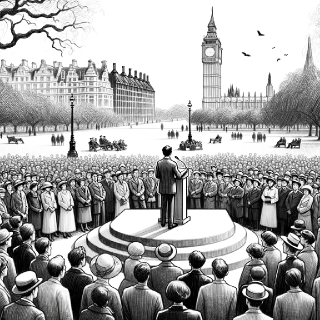

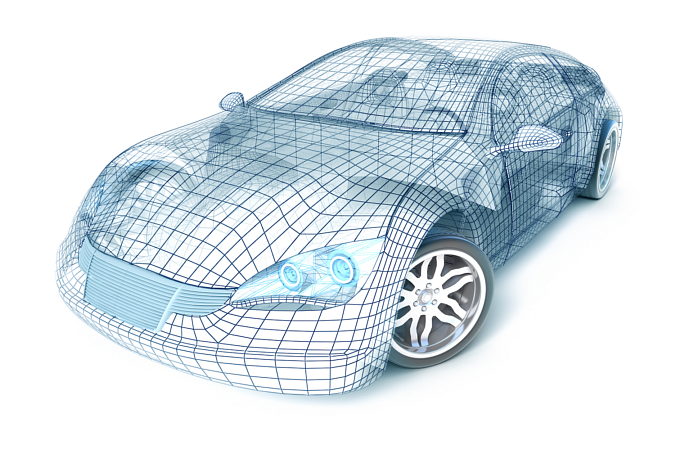
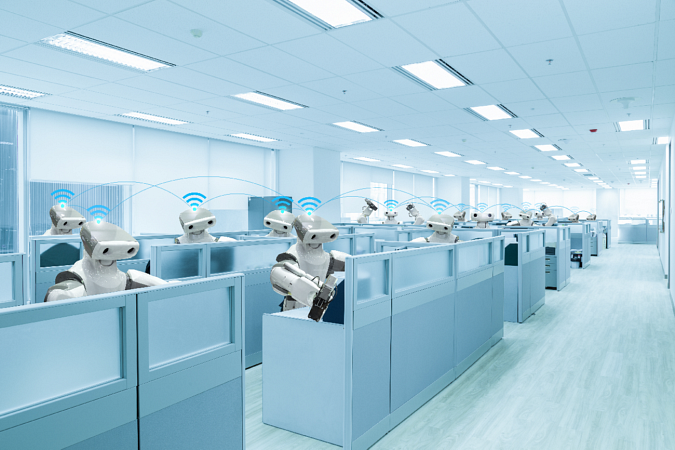
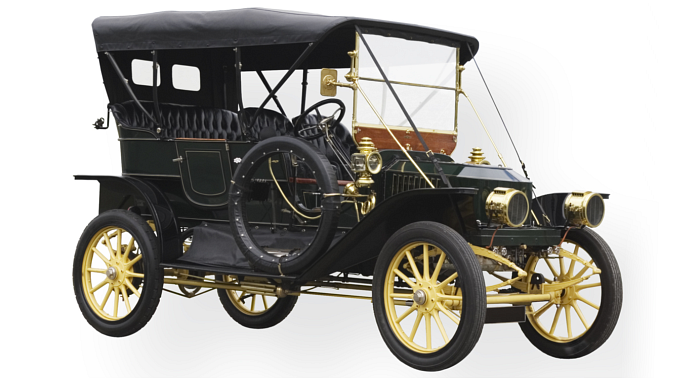
Be the first to comment